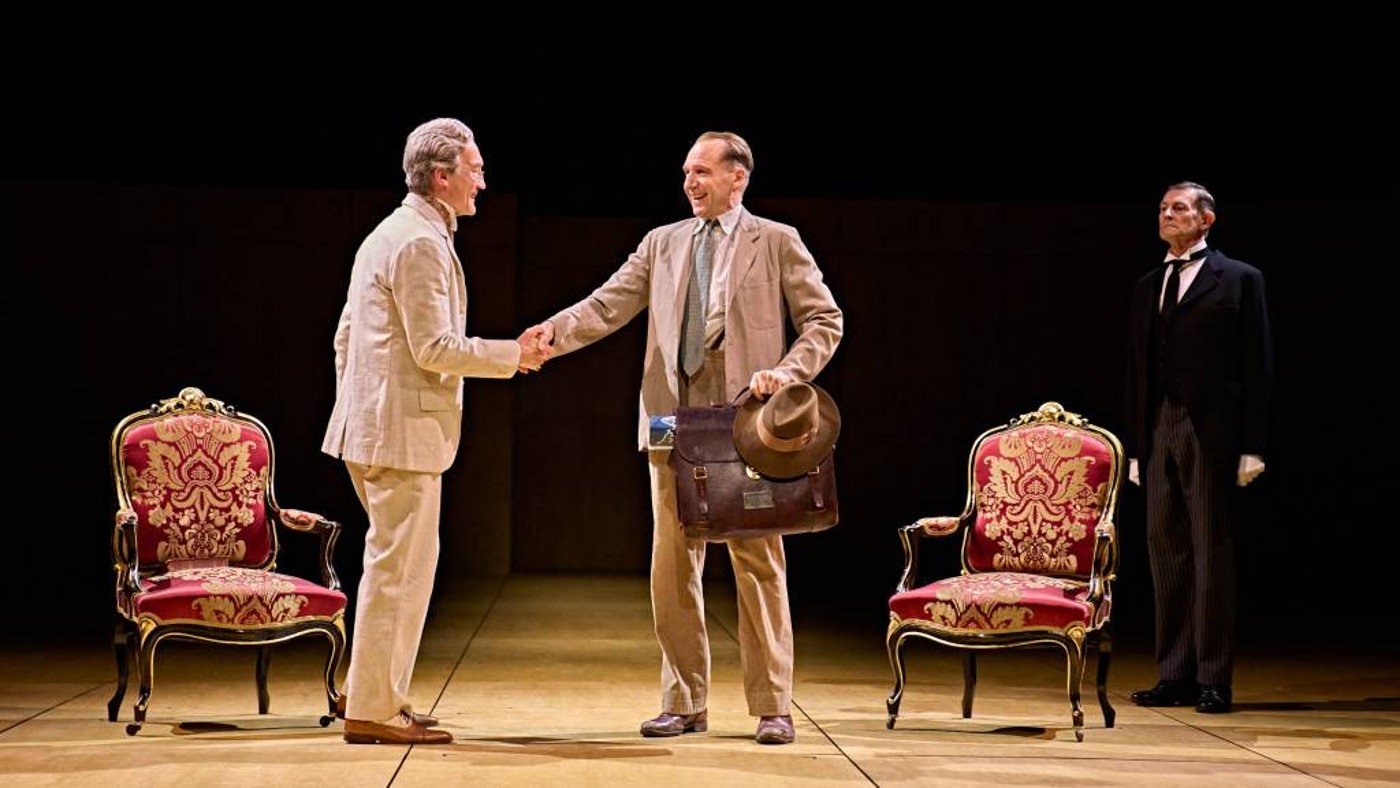Straight Line Crazy: David Hare’s ‘most dramatically gripping’ play for decades
Ralph Fiennes is a ‘triumph’ as the controversial urban planner Robert Moses

A free daily email with the biggest news stories of the day – and the best features from TheWeek.com
You are now subscribed
Your newsletter sign-up was successful
David Hare’s new play is his “most dramatically gripping and politically thoughtful” for decades – and in the main role, Ralph Fiennes is a “triumph”, said Mark Lawson in The Guardian. He plays Robert Moses, the controversial urban planner who shaped the New York metropolitan area for the age of the automobile, and influenced a generation of US civil engineers, architects and planners.
The play focuses on two contrasting episodes from Moses’s long career. In 1926, he strong-armed New York’s governor Al Smith into approving two giant expressways linking the city to Long Island. Then, in 1955, he failed in his attempt to put a road through Washington Square Park. It sounds dry, but the play “crackles” with “dynamic, ideas-driven dialogue” about the duel between elected and unelected power.
I am afraid that crackle is exactly what is missing, said Clive Lewis in The Times. Straight Line Crazy is an “uneven and often didactic play held together by a compelling, larger-than-life central performance”.
The Week
Escape your echo chamber. Get the facts behind the news, plus analysis from multiple perspectives.

Sign up for The Week's Free Newsletters
From our morning news briefing to a weekly Good News Newsletter, get the best of The Week delivered directly to your inbox.
From our morning news briefing to a weekly Good News Newsletter, get the best of The Week delivered directly to your inbox.

Fiennes is indeed “terrific” as the megalomaniacal “highwayman of a town planner”, said Patrick Marmion in the Daily Mail, but the play is oddly disjointed. In the first half, there’s a gripping long scene (“30 minutes of Hare’s greatest writing”) in which Danny Webb is on “blistering” form as Smith. Alas, the second half “dwindles into more of a critical essay”, with no similar visceral antagonist to drive the action.
What action, asked David Benedict in Variety. The play consists of long discussions – “energised by hard-working actors” – but almost “nothing happens”. And Hare is “painfully reliant on exposition”: right up to the end, characters are “explaining things to people who already know what they’re being told, so as to inform the audience”.
In place of drama, Hare gives us a series of “verbose and largely static Ibsenite confrontations”, said Sam Marlowe in The i Paper. Nicholas Hytner’s staging is “predictably deft and tasteful”. But it’s “all, frankly, a bit boring”.
Bridge Theatre, London SE1. Until 18 June
A free daily email with the biggest news stories of the day – and the best features from TheWeek.com
-
 What to know before filing your own taxes for the first time
What to know before filing your own taxes for the first timethe explainer Tackle this financial milestone with confidence
-
 The biggest box office flops of the 21st century
The biggest box office flops of the 21st centuryin depth Unnecessary remakes and turgid, expensive CGI-fests highlight this list of these most notorious box-office losers
-
 The 10 most infamous abductions in modern history
The 10 most infamous abductions in modern historyin depth The taking of Savannah Guthrie’s mother, Nancy, is the latest in a long string of high-profile kidnappings
-
 A thrilling foodie city in northern Japan
A thrilling foodie city in northern JapanThe Week Recommends The food scene here is ‘unspoilt’ and ‘fun’
-
 Tourangelle-style pork with prunes recipe
Tourangelle-style pork with prunes recipeThe Week Recommends This traditional, rustic dish is a French classic
-
 Samurai: a ‘blockbuster’ display of Japan’s legendary warriors
Samurai: a ‘blockbuster’ display of Japan’s legendary warriorsThe Week Recommends British Museum show offers a ‘scintillating journey’ through ‘a world of gore, power and artistic beauty’
-
 BMW iX3: a ‘revolution’ for the German car brand
BMW iX3: a ‘revolution’ for the German car brandThe Week Recommends The electric SUV promises a ‘great balance between ride comfort and driving fun’
-
 Arcadia: Tom Stoppard’s ‘masterpiece’ makes a ‘triumphant’ return
Arcadia: Tom Stoppard’s ‘masterpiece’ makes a ‘triumphant’ returnThe Week Recommends Carrie Cracknell’s revival at the Old Vic ‘grips like a thriller’
-
 My Father’s Shadow: a ‘magically nimble’ love letter to Lagos
My Father’s Shadow: a ‘magically nimble’ love letter to LagosThe Week Recommends Akinola Davies Jr’s touching and ‘tender’ tale of two brothers in 1990s Nigeria
-
 Send Help: Sam Raimi’s ‘compelling’ plane-crash survival thriller
Send Help: Sam Raimi’s ‘compelling’ plane-crash survival thrillerThe Week Recommends Rachel McAdams stars as an office worker who gets stranded on a desert island with her boss
-
 Book reviews: ‘Hated by All the Right People: Tucker Carlson and the Unraveling of the Conservative Mind’ and ‘Football’
Book reviews: ‘Hated by All the Right People: Tucker Carlson and the Unraveling of the Conservative Mind’ and ‘Football’Feature A right-wing pundit’s transformations and a closer look at one of America’s favorite sports